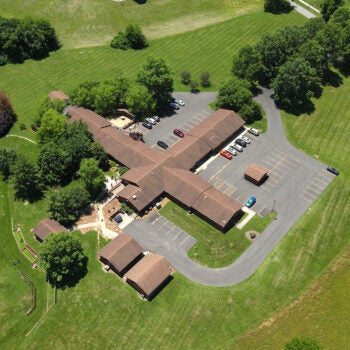Home / Health & Wellness Articles / Addiction /
A Week in Substance Use Residential Rehabilitation Treatment: Centerstone’s Fellowship House

As a counselor in a residential rehabilitation setting, one of my favorite things to watch is the fellowship of patients becoming peers and working well together. I work in a men’s residential facility where men in the facility come from many different backgrounds, and I think this is part of what makes it this setting unique and special.
Men often show up to treatment afraid, most of them are hiding those feelings of fear. They are afraid of the unknown, who will be there, what the routine is like, being accepted by others and many other unknowns. Peers typically surround the newcomer with support and encouragement, and those fears fade. This is a great introduction to the fellowship of community support groups such as Alcoholics Anonymous (AA) and Narcotics Anonymous (NA).
To help ease those fears, let us look at what a week in residential treatment might look like.
For example, a patient arrives on Monday for his scheduled appointment. A member of the direct care team will complete a medical assessment to make sure the patient is healthy enough to participate in treatment and to see what level of care they need to start in – detoxification or residential rehabilitation. Our patient for this example does not need detox; he is going to go into residential rehabilitation. The newcomer is searched, as are their belongings, they are assigned a room, then welcomed by his peers, and shown around the facility so they can find things such as where the laundry room, dining room, lounge, phone, and smoking areas are.
Monday evening the newcomer will start classes. The following day, he will begin the day with a quick, morning meeting with the group. Shortly after, he will meet with a counselor to complete a clinical assessment. By the afternoon, he will resume the class schedule. Monday through Friday, the schedule is pretty similar. Breakfast, then a morning meeting, followed by a day of classes, and groups and individual sessions. Some class topics include 12 steps, relapse prevention, denial, relaxation, fitness, cravings and relapse, communication, self-talk, and substance using behaviors, the disease concept and many others. The evening will end with another peer-led group followed by quiet time, which is offered as a time to reflect on the day, work on homework, meditate or head to bed if a patient chooses.
In our facility, on Fridays, there is a special time for patients completing the program soon to tell their story to their peers. This is good practice for engaging in community support groups after completing residential treatment. Saturdays also include classes, but not quite as many as the weekday classes. Sundays include an AA meeting facilitated by a recovering volunteer from outside the facility. By now, the patient is already back to Monday. They have made it through their first week of treatment. They no longer feel like a newcomer. They are part of the welcoming committee and working to make others feel welcome and accepted.
If you are thinking about entering treatment, call Centerstone at 1-877-HOPE123 (877-467-3123) to make an appointment or to ask any questions you may have.
Mandy Hazel, BS CADC, has been a counselor and case manager at Centerstone’s Fellowship House campus since July 2014. Mandy works with patients in the outpatient, detox, residential and family programs and has also served as a preventionist.


